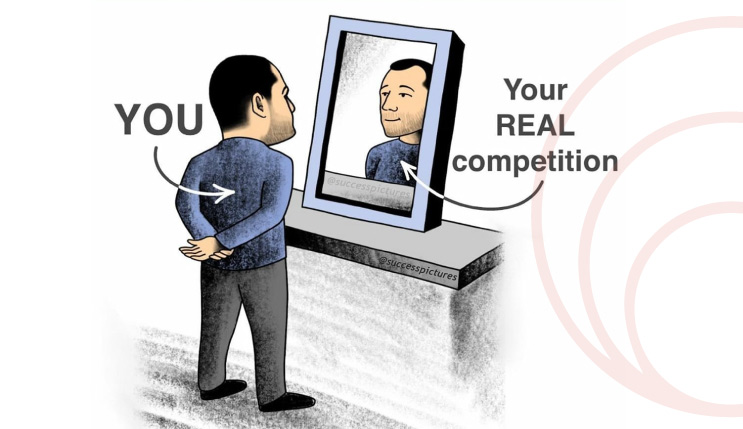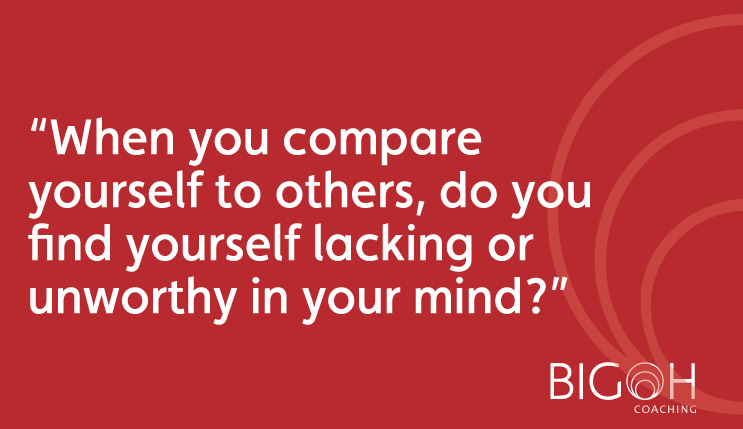21 Sep Believe…Part I

Do you sometimes lack belief in yourself? Do you look at your career or your business and think, how did I get here?
When you compare yourself to others, do you find yourself lacking or unworthy in your mind?
Well, the good news is you aren’t alone.
Have you come across the term, ‘impostor syndrome’?
It is something that has affected me, many people I have worked with and work with now in my capacity as Business Coach & Mentor working across South London Boroughs, Lewisham, Lambeth, Greenwich, Southwark, Bexley, Bromley et al.
Before I get into what ‘impostor syndrome’ is, let me share a short tale about me.
I have been using LinkedIn for years, as a housing bod of over 30-years’ experience, it was the go to platform (especially when looking for jobs as an Interim Housing bod).
However, after being ‘let-go’ from my last significant social housing management role, as Head of Housing, it took me almost 2-years to update my profile details and share with the world, the fact, that I had changed/pivoted and become a fully-fledged coach and mentor.

I just couldn’t. I did not for what seemed an eternity, because, I thought I was a fraud. I had recently graduated as a fully-fledged coach.
Fully accredited, I still did not believe I could go out there and say, “yep, guess what, I have been laid off again, now I am a coach, with my own coaching and mentoring practice”.
Why?
Impostor Syndrome
Dr Pauline Clance and Dr Suzanne Imes first used the term impostor syndrome to describe an experience of ‘self-perceived intellectual phoniness’ reported by high-achieving women. Subsequent research now confirms it is equally present in the male population.
Whilst it is commonly experienced, it isn’t recognised as a formal mental disorder, although it is often accompanied by anxiety, depression, and stress.
In the 1990s, this was not shared openly with colleagues and definitely not the senior manager who sought to promote you or give additional responsibilities.
In hindsight, it became present for me from the moment I was promoted into my first management role.
My first management role as an Income Management Team Leader, I managed a team of 5 individuals older than me, more experienced and knowledgeable than me. Who was I?

I have to say that feeling often resurfaced when I climbed that ‘corporate ladder’. Who’s this South London, Brixton boy, making waves and getting promoted, left, right and centre (getting noticeably worse the further I moved up the ladder) and continued into the first few years of my self-employed coaching career.
Despite my up-bringing, attitude, confidence, support, ideals, dreams and goals, I had nagging doubts about my capabilities and my value. It didn’t feel like I could trust my judgement in certain situations, particularly ones that brought about difficult conversations with my colleagues, stakeholders, clients and paymasters.

As a result, I would over-analyse everything and then become combative in situations where I felt at risk of being exposed.
Whilst I was aware of the feelings of low confidence, I didn’t attribute them to feeling like an impostor. That’s because the experience I had of inferiority felt legitimate and genuine to me.
Very much so, when I moved from being a housing bod into the world of self-employment, entrepreneurialism, and business.
Although I had been well educated, continued to educate myself and attained various post-graduate qualifications, this was not enough, it didn’t seem enough.
What made it even more galling was the fact that most apparent cause of this experience was that many of my peers, colleagues, and bosses were, in the main, white-male, and “not as educated” as me.
I still did not think I was good enough. I had to do more, work longer hours, seek out more qualifications, formal and vocational. Most telling I needed greater validation from my peers, colleagues, bosses, stakeholders et al. This was not forthcoming.
However, as I subsequently learned, the roots of such deeply held beliefs are often much deeper than the ‘obvious’ cause.
No one who worked with me or who had met me would have recognised that any of this was going on (several people that had worked with me in the past responded privately to me, saying they were surprised I felt this way, inferior, lacking in confidence, always pushing my boundaries to be seen and respected as being equally as good as others).
I hid it well, mainly by projecting self-confidence, engaging charming and politically astute…in essence ‘deferential’.

I still managed to hold degrees, Masters, become a Fellow, achieve the highest levels of accreditation and set up my own coaching and mentoring practice.
? So, what is the big deal, you might ask?
Join me next time and I will tell you more…
If you enjoyed this article, please comment below and remember to share with your friends.
Happy to discuss how the above applies to you?

